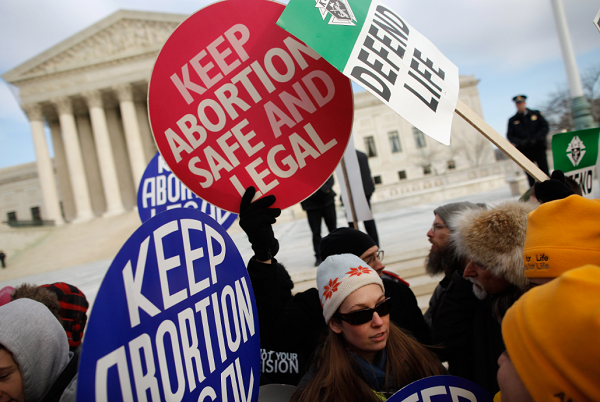Abortion Laws: Supreme Court Upholds Indiana Provision That Requires Burial Or Cremation Of Fetal Remains

All across the United States, the wave of new anti-abortion laws and bans has reinvigorated the debate around fetal rights and women's rights.
From every new “heartbeat ban” or regulatory law, groups like Planned Parenthood or the ACLU step up to challenge them. All this, from outward appearances, seems to be setting the stage for a possible showdown in the Supreme Court over Roe v. Wade.
But while it may be a while until that case could be taken up, the Supreme Court on Tuesday addressed abortion regulations in one state.
The Supreme Court ruled to reverse a lower appeals court ruling that struck down an Indiana law over fetal disposal after abortion. The law, originally signed in by Vice-President Mike Pence when he was Indiana's governor, required respectful treatment of fetal remains by abortion facilities through either proper burial or cremation.
The vote was 7-2, with liberal justices Ruth Bader Ginsburg and Sonia Sotomayor dissenting.
“I would have thought it could go without saying that nothing in the Constitution or any decision of this Court prevents a State from requiring abortion facilities to provide for the respectful treatment of human remains,” Justice Clarence Thomas wrote on the decision.
However, the Supreme Court was less apt to overturn another aspect of the 2016 law that has been struck down.
The provision, in question, would allow Indiana to block abortions that are motivated by race, sex, or disability. It was this provision of the law that drew the most blowback to Pence during his time as governor.
“The decision to have an abortion is for a woman to make, not the Governor of Indiana,” Sen. Bernie Sander of Vermont posted on Twitter in 2016.
Ultimately, the law was blocked in 2017 by the lower appeals court, largely due to this provision. Judge William Bauer said that it “clearly violates” what has been described as the “well-established Supreme Court precedent, and are therefore, unconstitutional.”
© Copyright IBTimes 2024. All rights reserved.




















